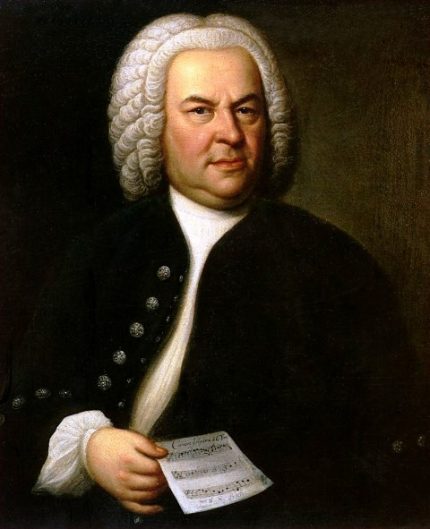Chamber Music Society brings great polish, less spontaneity to Bach’s Brandenburgs

Christmas in Chicago means some inevitable things: Christkindlmarkt will clog up Richard Daley Plaza, the Art Institute lions will don oversize wreaths, and the Chamber Music Society of Lincoln Center will perform the Brandenburg concertos at Harris Theater.
All things considered, the six-year tradition is a welcome departure from the seasonal fare saturating the end-of-year arts calendar. But, like relatives over the holidays, the concertos’ sheer familiarity can both comfort and chafe. How to keep these perennials fresh—especially under the auspices of an organization like CMS—was the question playing itself out onstage on Thursday night.
With a ballooning roster of more than 100 strong, CMS is less ensemble than consortium, billed as an all-star team of chamber music’s best and brightest. Assembling the world’s top-flight musicians, the logic goes, results in top-flight performances. Unsurprisingly, the 20 musicians who convened at the Harris Theater on Thursday night were technically impeccable, with sterling intonation and cohesion across the board. Chicago was the last stop on CMS’s December tour this year, and the level of preparedness showed, even by upper-echelon standards.
That said, CMS’s playing often felt polished to the point of effacement—a sore point made sorer in this uniquely soloistic repertoire. This wasn’t the performance to attend if one wanted to hear a probing, individualistic take on the Brandenburgs, with interpretations Thursday night that mostly prized clean virtuosity above other musical considerations.
Trumpet player David Washburn’s daunting piccolo trumpet solos in the outer movements of the Second Concerto came off with nary a crack or blip, but the concerto on the whole felt like a race to the finish. Even the titanic harpsichord cadenza in the Concerto No. 5 in D—a watershed moment in the Baroque keyboard repertoire—was treated to a glittering but decidedly literal reading by harpsichordist Paolo Bordignon.
But if inspired collective visions rely upon sensitive onstage engagement, even that cornerstone wasn’t always present on Thursday. The CMS musicians seemed to be relying on their music more than one would expect, sometimes even when thrust into the spotlight.
The Fifth Concerto’s dialogic concertino sections saw violinist Alexander Sitkovetsky and flautist Adam Walker playing prettily but almost perfunctorily, rarely looking up from their music at each other or the ensemble. Violinist Daniel Phillips and oboist James Austin Smith also seemed to experience some disconnect in the responsorial second movement of the Concerto No. 1 in F: Smith seemed attentive—and a notable presence for his attractive, honeyed sound—but Phillips didn’t quite reciprocate, playing his lacrymose strains as though alone onstage.
If the Brandenburgs are by now somewhat routine to CMS, some musicians concealed it better than others. Chicagoland native and violist Matthew Lipman brought consummate musicianship and infectious joy to the three concertos he played. In no small part because of his sensitivity, the mezzo voce Concerto No. 6 in B-flat was the evening’s gem: the 25-year-old was totally locked into elder CMS statesman Paul Neubauer, their interplay pleasantly quarrelsome as the early-morning parley of birds.
Violinist Yura Lee also infused the concertos she played with a Midas-like creativity. Foregrounded in the concertino alongside the flutes in the Fourth Concerto, her playing glinted in flashy moments—the explosive cascades of thirty-second notes in the first movement, certainly—but also lent depth and vigor even to simple arpeggiated lines.
Lee also played an unexpected supporting role in the strings-rich Concerto No. 3 in G, which closed the concert. Violinist Ani Kavafian nobly and authoritatively led from the first desk; after playing an elegant little cadenza as the piece’s second movement, she briskly kicked off the third movement, only for a draft to blow her music shut just before a solo. After struggling to turn back the page herself, Kavafian gave up and played the bristling passage from memory. With a reassuring smile, Lee deftly fixed her compatriot’s music before resuming her no-less-knotty part, not a beat too late.
The circumstances were harrowing and less than ideal, but something about the moment epitomized chamber music at its best: expertise, yes, but also collegiality, spontaneity, and a certain unretouched humanity. If CMS brings a little more of the latter qualities to Chicago next year, their annual Christmas Bach night will be much the better for it.
The Chamber Music Society of Lincoln Center presents “Total Mozart” 7:30 p.m. February 11 at the Harris Theater. harristheaterchicago.org.
Posted in Performances

